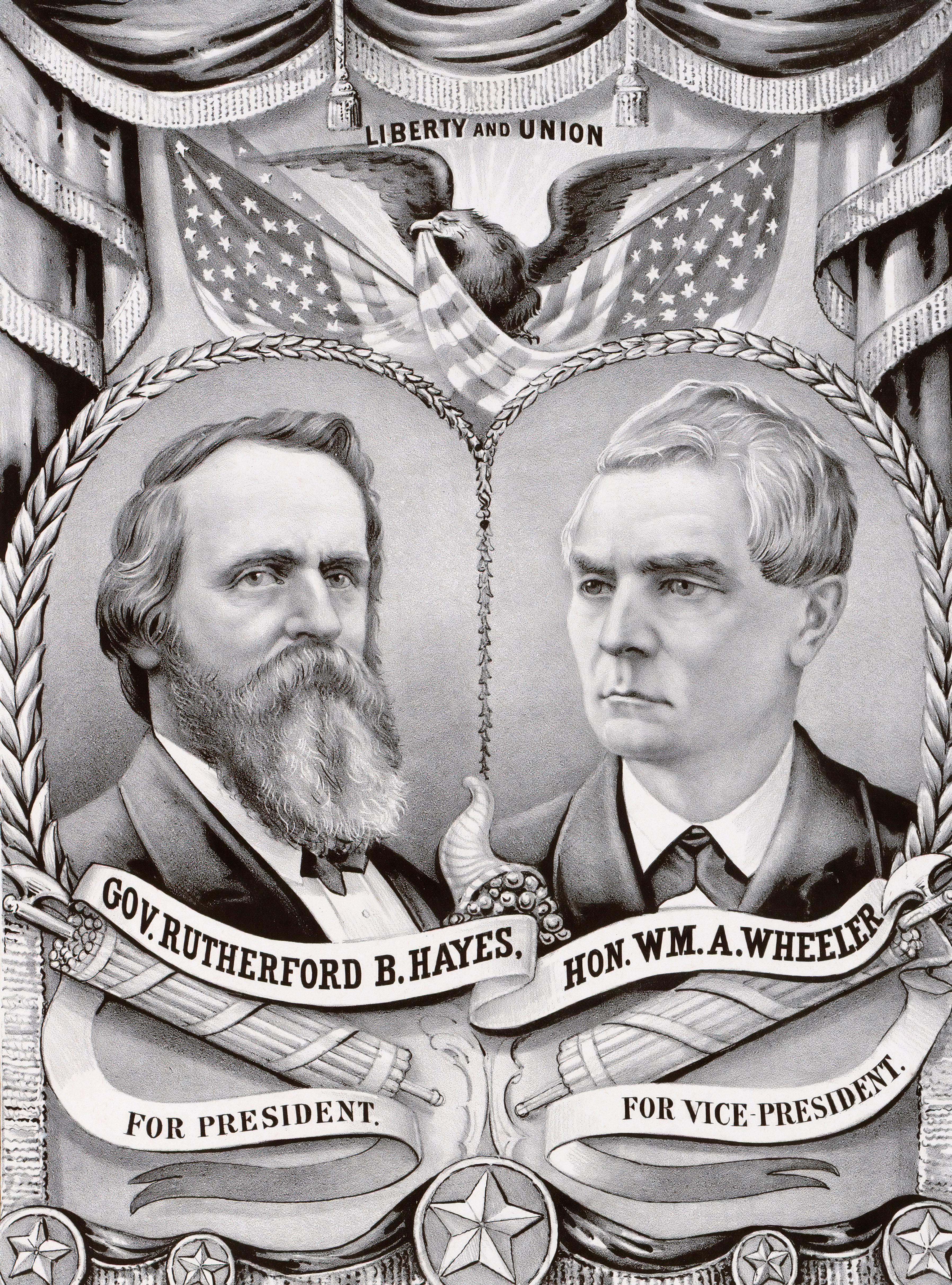Hillary Clinton should be wary of the fate of 1870s Republicans
A coalition between upper and lower classes is inherently unstable


A free daily email with the biggest news stories of the day – and the best features from TheWeek.com
You are now subscribed
Your newsletter sign-up was successful
New polls show that Hillary Clinton is doing extraordinarily well among upper-class whites — partly the result of many decades of erosion of Republican margins among this group, and partly the result of Donald Trump's abysmal polling among educated people generally. She is now poised to win white college graduates outright, something no Democrat has done since at least 1956.
That's good news for her chances in November. But Democrats — and African-Americans — should be wary of such an electoral coalition. It strongly resembles the one built by the Republican Party after the Civil War — one which eventually collapsed due to the class and racial frictions contained within it.
Let's replay the tape. In the decade after the Civil War, a faction of the GOP called the Radical Republicans built a political coalition between recently enfranchised freedmen in the South and respectable business-minded voters in the North. The glue of this coalition was the "free labor ideology," which insisted that orthodox capitalism — consisting of contract and property rights, manhood suffrage, the gold standard, union-free labor markets, and a reasonably equitable distribution of land — would provide a fair and decent standard of living for everyone, as well as a chance for advancement for the lower classes.
The Week
Escape your echo chamber. Get the facts behind the news, plus analysis from multiple perspectives.

Sign up for The Week's Free Newsletters
From our morning news briefing to a weekly Good News Newsletter, get the best of The Week delivered directly to your inbox.
From our morning news briefing to a weekly Good News Newsletter, get the best of The Week delivered directly to your inbox.
Republicans balked at providing the freedmen with any substantial material benefits, but they did defend their black voters' suffrage, up to and including repeated use of federal troops and law enforcement to suppress white supremacist terrorism. Overall, the free labor ideology was never very plausible, but it was good enough for government work.
All that changed with the crisis of 1873. This was a financial panic that augured in a two-decade depression, and Republicans were caught totally flat-footed. As Herbert Hoover would later discover, orthodox capitalism is completely incapable of solving mass unemployment. On the contrary, tight money and balanced budgets only make the problem worse.
Republicans were obliterated in the midterm elections of 1874. But worse still, around this time a growing faction of Liberal Republicans — many of them former Radicals — began propagating a more brutal version of the dominant ideology. They were steeped in classical liberal writings, and had "progressive" journals like The Nation and The Atlantic Monthly as their house organs. This faction, containing many of the most educated people in the country, successfully mobilized against economic stimulus, convincing President Grant to veto a currency bill which would have provided for more inflation, spending, and employment.
They also attacked the corruption of Republican machine politics and black-led Reconstruction governments in the South. These latter arguments increasingly partook of racist stereotypes from Southern whites about black incompetence and inability, and made excuses for or outright supported white supremacist terrorism. (Naturally, they ignored the fact that corruption in reconstructed states was no worse than average for the time). More and more, the Liberal Republicans accepted Southern Democrats' arguments that blacks should not be allowed to hold office.
A free daily email with the biggest news stories of the day – and the best features from TheWeek.com
All this created an extremely close election in 1876, whose outcome was disputed. After some wrangling, Republicans basically traded the presidency for their black voters in the South. Rutherford B. Hayes got the White House, and black Americans got a century of Jim Crow.
Now, of course, there is no neat one-to-one historical decoder ring to be found here. But I think a few broad-strokes lessons are evident.
The first is that an alliance between upper-class and lower-class segments of society is inherently unstable. To maintain their grip on power Republicans should have fixed the economy, but they were unwilling to abandon their orthodox economic ideology — instead, they abandoned their commitment to black suffrage. Today, Democrats do not believe in the gold standard — but they are still depressingly willing to pay obeisance to austerian notions about balanced budgets.
The second is that upper-class white people have been highly unreliable partners in the quest for racial justice throughout American history. Educated white Republican politicians and elites, nurtured on the latest progressive theories, grossly betrayed their black fellow citizens in 1876 — and at a time when that population made up its single most loyal voting block. Writers have repeatedly dissected the racism of downscale Trump voters, but I'll take the worst Trumpy fulmination against the darkest days of The Nation.
It's hard to imagine rich Democrats abandoning the franchise as the Liberal Republicans did. But it is easy to imagine them balking at the expense necessary to attack racism head on. Bringing all black Americans to an equal share of citizenship, including an attack on police brutality, must involve a tremendous expansion of the welfare state to eradicate poverty. Despite the apparent left-leaning views on economic matters among current upper-class whites, it's a safe bet that if huge tax hikes come up to pay for such a program, they'll conveniently discover some different opinions.
Ryan Cooper is a national correspondent at TheWeek.com. His work has appeared in the Washington Monthly, The New Republic, and the Washington Post.
-
 Mexico’s vape ban has led to a cartel-controlled black market
Mexico’s vape ban has led to a cartel-controlled black marketUnder the Radar Cartels have expanded their power over the sale of illicit tobacco
-
 Nepal’s fake mountain rescue fraud
Nepal’s fake mountain rescue fraudUnder The Radar Arrests made in alleged $20 million insurance racket
-
 History-making moments of Super Bowl halftime shows past
History-making moments of Super Bowl halftime shows pastin depth From Prince to Gloria Estefan, the shows have been filled with memorable events
-
 The billionaires’ wealth tax: a catastrophe for California?
The billionaires’ wealth tax: a catastrophe for California?Talking Point Peter Thiel and Larry Page preparing to change state residency
-
 Bari Weiss’ ‘60 Minutes’ scandal is about more than one report
Bari Weiss’ ‘60 Minutes’ scandal is about more than one reportIN THE SPOTLIGHT By blocking an approved segment on a controversial prison holding US deportees in El Salvador, the editor-in-chief of CBS News has become the main story
-
 Has Zohran Mamdani shown the Democrats how to win again?
Has Zohran Mamdani shown the Democrats how to win again?Today’s Big Question New York City mayoral election touted as victory for left-wing populists but moderate centrist wins elsewhere present more complex path for Democratic Party
-
 Millions turn out for anti-Trump ‘No Kings’ rallies
Millions turn out for anti-Trump ‘No Kings’ ralliesSpeed Read An estimated 7 million people participated, 2 million more than at the first ‘No Kings’ protest in June
-
 Ghislaine Maxwell: angling for a Trump pardon
Ghislaine Maxwell: angling for a Trump pardonTalking Point Convicted sex trafficker's testimony could shed new light on president's links to Jeffrey Epstein
-
 The last words and final moments of 40 presidents
The last words and final moments of 40 presidentsThe Explainer Some are eloquent quotes worthy of the holders of the highest office in the nation, and others... aren't
-
 The JFK files: the truth at last?
The JFK files: the truth at last?In The Spotlight More than 64,000 previously classified documents relating the 1963 assassination of John F. Kennedy have been released by the Trump administration
-
 'Seriously, not literally': how should the world take Donald Trump?
'Seriously, not literally': how should the world take Donald Trump?Today's big question White House rhetoric and reality look likely to become increasingly blurred
